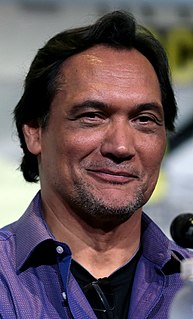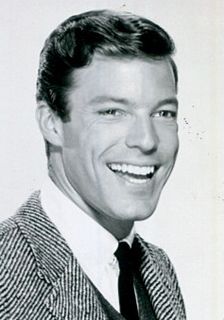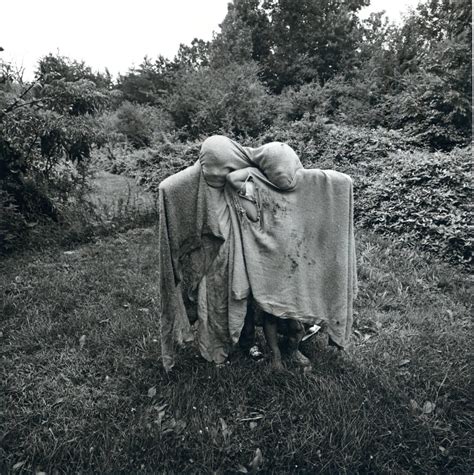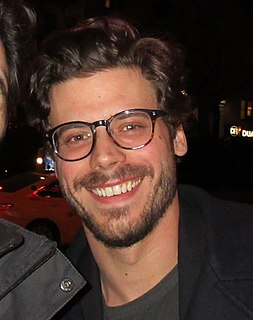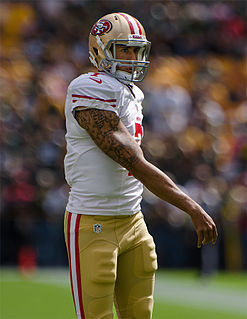A Quote by Jimmy Smits
People become actors because they want to hide, and it's not easy to talk about myself. I accept that a certain responsibility goes with being an actor in the public eye, but I haven't found a comfortable way to deal with it.
Related Quotes
When you go for something because you're curious about it, you get psyched up about the chance of getting into it. It's like an actor meets a role, and you slip into that body and see what happens, to experience certain conditions, to adopt a certain character. Even shooting is a study of the character. I think both the character and the actor, and eventually the filmmaker - myself - are finding a way to accept their environment and being accepted and feel comfortable of themselves.
And the bottom line is we are who we are-we look a certain way, we talk a certain way, we walk a certain way. I strut because I’m a supermodel, and sometimes I gallop for fun. When we learn to accept that, other people learn to accept us. So be who you really are. Embrace who you are. Literally. Hug yourself. Accept who you are. Unless you’re a serial killer.
I am not a romantic leading man anymore so I don't need to nurture that public image anymore. I can talk about it now because I'm not afraid anymore . . . When I grew up, being gay, being sissy or anything like that, was verboten. I disliked myself intensely and feared this part of myself intensely, and had to hide it and became 'Perfect Richard, All-American Boy' as a place to hide.
What's great is that the picture is already taken before it goes public. It's in secret. The trust that develops from such a habit engenders risk, and you realise you're not as vulnerable as you thought. Once you become comfortable with being more truthful about who you are, the easier it is, the prouder you become. That's the way it unfolded for us.
I think that to me, films are personal affairs. It doesn't mean that I am against other people doing things differently, but I'm talking about what I can do. So I don't feel comfortable going to a new city or a certain class of which I don't have sufficient knowledge, doing research on that, and then writing a story about it I don't think I have the ability of presenting other people on screen in that way. It makes me uncomfortable. This doesn't mean that I only want to talk about myself. I want to talk about what I know.
People who don't want to get on with their lives, and don't want to accept responsibility for the direction of their lives want to hang out with other people who don't want to accept responsibility or move on, and so you find that your entire culture around you are people who are just like you, because that's what's comforting.
I'd say my relation to being a woman is, I mean being a woman is whatever you want because the concept of gender is not really real, you know? And so for me it's about being comfortable in myself. It's about allowing myself to express who I am in any way that I want to, whether that be through my clothing, the way I present myself to the world, whether that be through like my gender identity and my pronouns. It's just really about allowing yourself to really be expressive and creative.
I always get a little bit pissed off when stand-up comedy is not recognised as being as good a craft as being an actor. We give Oscars to people and it's like, 'Aw, this person is the greatest person on earth', but being an actor is pretty easy in comparison to stand-up comedy. It's no surprise that several stand-up comics have gone on to become great actors. I don't know any great actors that have gone on to become great stand-up comics.
I consider myself true, which, I know, some people look at as radical, but I enjoy the normalcies of life. I'm not out there trying to transform things, but somehow, by being easy to talk to, and easy to look at, and on a mainstream TV show, I think that I'm helping the public's opinions about transgendered people to change, slowly.
When I hear myself speak French, I look at myself differently. Certain aspects will feel closer to the way I feel or the way I am and others won't. I like that - to tour different sides of yourself. I often find when looking at people who are comfortable in many languages, they're more comfortable talking about emotional stuff in a certain language or political stuff in another and that's really interesting, how people relate to those languages.
I'm not like most comedians. I don't deal with just heckles - I'm also dealing with threats and anger. Here I am, a brown person on stage being quite blunt. I talk about white privilege; I talk about U.S. imperialistic practices; I talk about colonialism. I'm not saying things that are easy for people to laugh at.
I did not think I had what it took to be an actor, because most of the actors that I encountered were people who were very narcissistic and I thought since I lacked narcissism to become an actor because that's what it took. It was more of a social experiment for me to walk in the shoes of other people that I found interesting.
